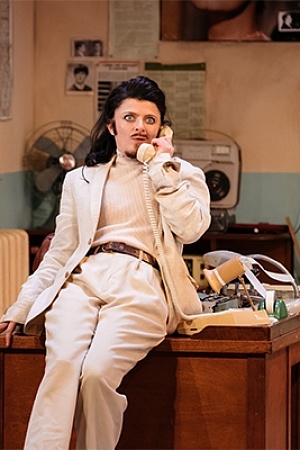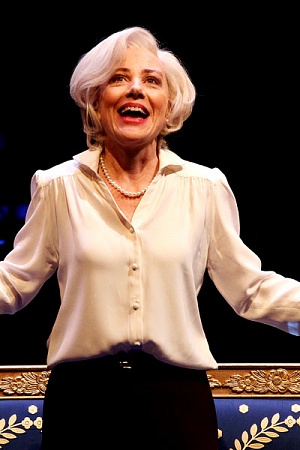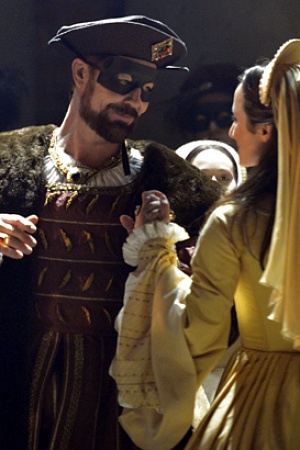The Master & Margarita

Don’t contradict strange gentlemen. Take special care around the George Street light rail. Watch out for flying pigs. Treat any black cat you might meet with caution, especially ones that speak to you. Woland and his satanic crew have taken up residence at Belvoir.
One of the many ironies connected to the Russian playwright and novelist Mikhail Bulgakov (1891–1940) is that though he wrote several eminently performable plays, one of which, The Days of the Turbins, was mangled by the Sydney Theatre Company in 2011, it is his novel The Master and Margarita which is constantly produced. There have been several films, a couple of television series, ballets, and operas based on the novel. Perhaps surprisingly, there have also been many stage adaptations. Surprising because, as well as the aforementioned pig and that garrulous cat, the novel contains, along with many other black magic tricks, a satanic ball attended by a vast number of villains and a scene in which the female audience members of a magic show have a nasty surprise as they exit the theatre. Oh, and there’s also a cast of thousands who turn out to watch an execution.
Continue reading for only $10 per month. Subscribe and gain full access to Australian Book Review. Already a subscriber? Sign in. If you need assistance, feel free to contact us.











Leave a comment
If you are an ABR subscriber, you will need to sign in to post a comment.
If you have forgotten your sign in details, or if you receive an error message when trying to submit your comment, please email your comment (and the name of the article to which it relates) to ABR Comments. We will review your comment and, subject to approval, we will post it under your name.
Please note that all comments must be approved by ABR and comply with our Terms & Conditions.